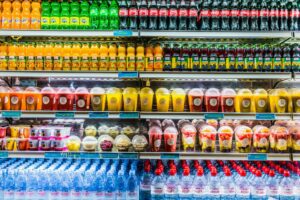KTN and the UK Circular Plastics Network held a 90-minute session on the 11th November to introduce some areas of mathematical science into the challenge of plastics management. Both parties are keen to facilitate collaborations in this space and bring mathematical science tools to bear on this important social, economic, technical and environmental challenge.
The landscape of plastics management is a complex one (figure below), involving many stakeholders, and behavioural aspects which make quantitative modelling difficult. The idea of complexity, and human behaviour was referred to many times by our expert panel of mathematical science its. What then are some of the tools which mathematical science might bring?
During the meeting, we heard from three expert mathematical scientists who introduced in short 10 minute contributions the fields of experimental design, logistics and behavioural modelling.
- Professor Henry Wynn from the London School of Economics gave us a potted history of experimental design from field trials to optimal experiments. Professor Wynn emphasised the importance of systems capture, the plastics challenge is a social, economic, social and environmental (TESE) challenge, and the objectives may depend on all four. Professor Wynn boiled the challenge down to one question; how to do experiments in building causal models (proving causality of an action / intervention), in these TESE systems, where people’s behaviour is so important? He provided a spectrum of solutions; at one end, you could try to build extremely complex models (like those we have seen for Covid19) which captures explicitly the complexity of the system. At the other end one might consider something called A/B/A testing. In this approach, A is normality, then you intervene with B (putting bins in supermarkets for example), then return to A and look at the effect. This approach has been used in recycling studies for building such casual models. A/B/A testing could be powerful method for nudging and understanding behaviours.
- Dr Lars Schewe from the University of Edinburgh introduced the audience to the field of operational research, and some of its various subtopics; of logistics, facility location, pricing, and production planning. With reference to the plastics challenge, Dr Schewe posed some open questions to the forum; how do we integrate collection of plastics? How do we set deposits which incentivise returns whilst not losing sales? How many and of what type of plastic should producers be creating which balance durability and costs? Where should we place collection and cleaning sites? The field of operational research has something to say on all of these questions.
- Professor Rebecca Hoyle of the University of Southampton provided the forum with ideas on how behavioural aspects of the challenge could be modelled, an area of such importance to the challenge. The forum heard about approaches in game theory, games on networks, networks which represent mathematically social and economic interaction, agent-based models, data science approaches, and many others.
These are of course not the only areas in which mathematical science can provide insight into the world of plastics management. As was raised in the discussion chaired by Professor David Abrahams and guest Lucinda Langton of Coca Cola European Partners, materials modelling for plastics and polymers in design and manufacture is yet another overlap between mathematical science and the challenge.
UKCPN and KTN (through V-KEMS – the Virtual Forum for Knowledge Exchange in the Mathematical Science is keen to arrange 1-2-1 meetings between mathematical scientists and those in the area of plastics management to discuss problems, potential solutions, and linkages into funding streams.
If you which to discuss any of the aspects discussed in the webinar, or other areas where mathematical science might be of use to your business, please do contact sally.beken@ktn-uk.org with a short description of your challenge / idea, and we will contact you with support.
You can view the recording of the event below:
View the report that KTN published in the lead up to the event, focusing on ‘Networks and Optimal Control for a Circular Economy’.




